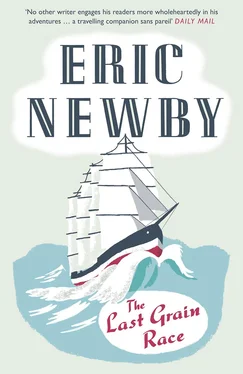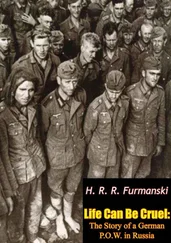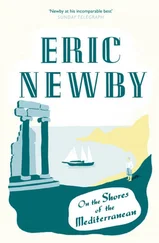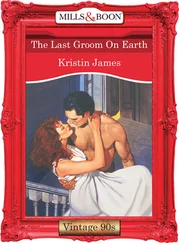With two others I was given the job of carrying coal to the galley from the small hatch near the fo’c’sle head. In the coal store by the forepeak we filled great oil-drums with coal, manhandled them in the darkness below decks to the hatch opening, hauled them on deck and carried them to the galley, slung on a capstan bar – hard work for my unpractised arms. We made ten journeys like this before the Cook was satisfied. Afterwards I again cleaned the lavatories.
At eight o’clock came breakfast, which was a mess of pungent beans and very pickled bacon. I was then told to collect a hammer, a pot of red lead and a brush and go over the side forward to chip the rust off the topsides – a job the more experienced and favoured members of the crew had been engaged in since 6 a.m. Rain was still falling steadily. There were already two or three precarious platforms over the side when I got there. They were simply planks with ropes made fast to either end and belayed on deck.
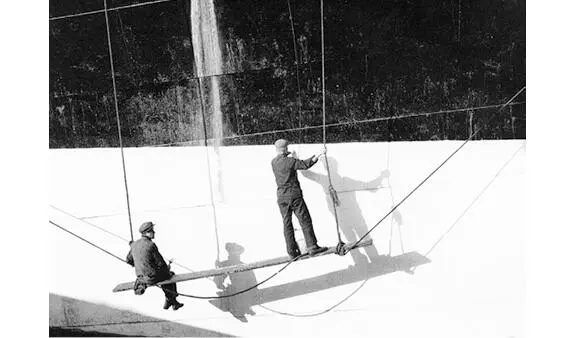
Painting the ship
I do not think it was by design that the platform I inherited was in the most difficult position right over the bows, about two feet above the water. Grimly I lowered myself twenty feet to the platform, to find that it was immediately below the lavatory which I had just cleaned. I began to wish that I had used two or three more buckets of water, and this was a good lesson to me in doing a job thoroughly. At sea one was very likely to find oneself let down by one’s own mistakes. I had not the strength to climb the rope again and shift to a more wholesome area, so I settled down to work where I was.
Set perilously above the dirty waters I first chipped and then red-leaded a large irregular piece of the ship’s side, using red lead from the pot which hung in front of me on a cord. Horizontal movement of the platform was controlled by a system of ropes. In trying to move my platform so that I could work in a fresh and more agreeable situation, and being unable to regain the deck to shift the head-ropes, I inadvertently let slip a clove-hitch which was keeping my platform about four feet to the left of its proper position. The whole construction, thus released, swooped sideways and hit the platform of the man who early that same morning had told me to ‘shot op’ when I hit my head on his bed-boards. He was an able seaman called Sedelquist, made more bad-tempered than usual by the events of the previous evening. The shock of the collision made me drop my hammer in the dock, upset the red lead on Sedelquist’s overalls, and knocked the brush out of his hand. It gave him a bad fright. I had not imagined that he could speak English, as up to now we had not spoken, but he immediately called me a ‘focking 1bastard’ and disappeared on deck. Soon he returned with the same Mate who had sent me aloft the day before.
‘What d’you bloody well think you’re doing?’ he shrieked down at me.
‘I’m terribly sorry,’ I replied. This piece of English courtesy was wasted on the Mate. In fact it made him more angry.
‘I’m sorry you’re in this ship. Where’s your hammer?’
‘I’m afraid it’s gone,’ I replied, almost bashfully.
‘Jesus,’ said the Mate. ‘Because you’re English you think you can lose my hammers. I’ll take it off your pay.’
When, months later, I got to Australia and collected part of my pay, amongst the deductions for cigarettes and so on made by the Captain, was my little hammer.
‘You are zorry, I am zorry,’ said Sedelquist, when the Mate had gone, looking at his beautiful dungarees covered with red lead.
My morale, which had been dropping since I arrived in Belfast, fell to new depths. But I was learning. I vowed that I would never again, whilst in the ship, be sorry for anything, and apart from some lapses I managed to keep this resolve. I had been outraged by Sedelquist’s action in rushing on deck to tell the Mate what had happened. Years of school life, happily behind me, told me that by schoolboy standards, Sedelquist had ‘sneaked’. At my prep school he would have been sent to Coventry. Here I seemed to be in danger of suffering the fate which should have been his.
After some hours on the freezing platform, during which I brooded on these questions and hit viciously at the ship’s side, a whistle blew. It was the dinner hour. Sedelquist swarmed up his rope with agility. Pride prevented me from asking his help. I had never been very good at climbing at school and I had always loathed the glib, bouncy, P.T. instructor who used to disport himself on the comfortably thick ropes in the gym. This rope was different. It was two-inch manilla and very greasy. With great efforts I rose seven or eight feet and then slipped miserably down again. My second try took me higher but I could not see how I could climb out over the flared bow.
I managed to get within an inch or two of the lower rung of the rail and then I was back on my platform, almost in tears. I considered jumping in the dock and swimming or shouting to attract attention. Neither of these courses really appealed to me. Eventually I managed to traverse the side of the ship and reach the platform beyond Sedelquist’s. Here I got my foot in a hawse-pipe and reached the deck easily.
Dinner was over and the ‘Little Dutch Mill’ was being played when I arrived. I was greeted with derisive cheers. I had learned another lesson, not to be late for meals.
‘You are zorry,’ said Sedelquist, ‘and you are noh strong.’
There was no reply to this and I got on with the cold remains of the dinner which I had begged from the Cook and which seemed unaccountably good.
Although my popularity was at a low ebb, it received a tremendous fillip the next day, my third on board, a short period which already seemed to me like an eternity. The coal supplies were low and we were replenishing them from the shore. I was therefore rather dirtier than usual and was looking forward to a bath at the Salvation Army Refuge, of which I thought very highly, having had a hot one for next to nothing the night before. I was standing at the rail when I saw a very fast and luxurious sports car nose its way along the dock and come to a halt by the ship. There was a flurry of skirts as the occupant emerged, and a distant vision of legs of timeless elegance as a woman, clutching a splendidly unpractical hat, came up the gang-plank.
Naturally all work on board ceased, and the crew gave themselves up to an orgy of speculation. There was a short interval before she appeared by the mainmast, escorted by two Mates (the First having just joined); both wore social expressions and braid caps which they had put on with miraculous speed. According to Sedelquist, they kept their hats handy in the officers’ lavatory for just such an emergency. I was not used to the Second Mate in this new social role, but by now I had recognised the visitor and was not as surprised as the rest of the crew when I was called aft.
The visitor was a great friend of my parents, called Lucy, whom I had always worshipped from afar. Whenever possible I would refer to her as ‘my aunt in Ireland’, but it was only practicable to do so when she was not present and to people who did not know her. I had been debarred from any other pretence by my extreme youth. Now, here she was, dressed in black, the most elegant woman in Ireland. I must have looked pretty bad, because her first words were: ‘Och, Eric, come away home now, your mother’s crying her eyes out.’
‘I’m afraid I can’t, Lucy,’ I said, lying bravely. ‘It’s tremendous fun really, and I’m not always as dirty as this.’
‘Can he come home with me?’ she asked the Mate, who was goggling.
Читать дальше
